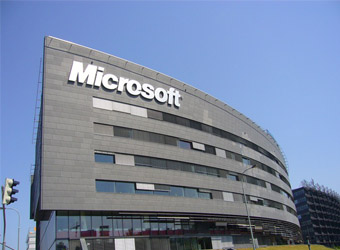Microsoft Corp takes on Google’s Motorola Mobility unit this week in the second of two landmark trials between the companies that delve into hot disputes over the patents behind smartphone and Internet technology.
The jury trial, starting Monday in federal court in Seattle, is set to resolve whether Motorola breached its contract with Microsoft to license on reasonable terms its so-called standard essential patents, covering wireless and video technology used in the Xbox game console.
The proceeding comes days after Microsoft Chief Executive Steve Ballmer unexpectedly announced his retirement. It also follows a complex trial last November that decided what the appropriate fee for Microsoft’s use of Motorola-patented technology should be.
After five months of deliberation, U.S. District Judge James Robart came down heavily in Microsoft’s favor, saying it owed only a fraction of the royalties Motorola had claimed, suggesting the appropriate rate was about $1.8 million, above Microsoft’s estimate of $1 million, but well below Motorola’s demand for as much as $4 billion a year.
Motorola cannot appeal Robart’s April ruling until after the jury decides the second phase of the case.
In a court filing, Microsoft said it had offered to pay Motorola $6.8 million in past royalties, based on its application of Robart’s order. However, Motorola rejected the money, the filing said.
In the forthcoming trial, starting with jury selection on Monday, Microsoft will argue that Motorola’s initial demand was exorbitant and a clear breach of its agreement to charge reasonable and non-discriminatory terms – commonly referred to as ‘RAND’ – for technology that is an industry standard.
Microsoft and Google declined comment on the trial.
After the result of the first trial, Motorola may have an uphill task in persuading a jury that it did not breach its contract. But Microsoft might not be able to recover huge damages, either.
“I think the interesting question is, assuming the court finds that Motorola breached its obligation to offer a RAND license, what is the remedy?” said Mark Lemley, a Stanford Law School professor who has been following the litigation. “No court has addressed that issue before.”
In its quest for damages, Microsoft will introduce evidence about how much it had to spend to relocate a facility in Germany as a result of an injunction that Motorola won in Europe, according to court filings. Robart later ordered Motorola not to enforce that injunction, and Microsoft claims it should be reimbursed.
Microsoft will also seek legal fees resulting from the injunction fight.
The argument between Microsoft and Motorola – and by extension Google, which now owns it – is just one facet of a wide-ranging global patent war surrounding smartphone and Internet technology that has drawn in Apple Inc, Samsung Electronics Co, Nokia and others.
At heart, the companies are arguing over who owns the technology and design features behind smartphones, which are now essentially small computers.
More particularly, Microsoft has been locked in a battle with Google to ensure that handset makers using Google’s free Android phone operating system pay Microsoft a license fee. Most large handset makers, such as Samsung, LG and HTC, have agreed to pay Microsoft a royalty on Android handsets that Microsoft believes may infringe on its patents. Motorola, which was bought by Google last year for $12.5 billion, is the last big holdout.
Robart gave each side 16 hours of trial time to present their case to a jury.
The case in U.S. District Court, Western District of Washington is Microsoft Corp. vs. Motorola Inc., 10-cv-1823.
Source: Reuters


